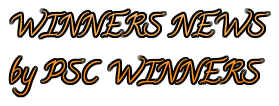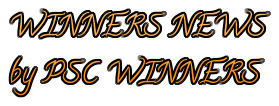PSC DETAILED SYLLABUS FOR THE POST OF CLINICAL PSYCHOLOGIST
PSC DETAILED SYLLABUS FOR THE POST OF CLINICAL PSYCHOLOGIST IN HEALTH SERVICES/MEDICAL EDUCATION (MEDICAL COLLEGES-NEUROLOGY) DEPARTMENT
(Cat.No.: 136/2020, 265/2020)
(Total- 100 Marks)
(Duration: 1 Hour 30 Minutes)
Medium of Questions: English
ഈ പരീക്ഷയുടെ വിശദമായ സിലബസ് താഴെ നൽകുന്നു (ഇതിന്റെ പി.ഡി.എഫ് ലിങ്ക് ചുവടെ നൽകിയിട്ടുണ്ട്). പരീക്ഷയുടെ ചോദ്യോത്തരങ്ങൾ ലഭിക്കാനുള്ള ലിങ്കും സിലബസിനോടൊപ്പം ചേർത്തിട്ടുണ്ട്. പരീക്ഷയുടെ വിവരങ്ങളും മുൻ ചോദ്യപേപ്പറുകളും ലഭിക്കാൻ ഇവിടെ ക്ലിക്കുക
Unit 1:Mental Health and Illness (5 Marks)
Concept of mental health and illness; Systems of classification: DSM-5 and ICD10; DSM-5 - from Multi-axial Classification to Single Axis.
Role of family and society in the development of mental illness: Family
influences- Early deprivation and trauma; neglect and abuse;
attachment; separation; inadequate parenting styles; marital discord and divorce; maladaptive peer relationships; communication style; family burden; emotional adaptation; expressed emotions and relapse.
Societal influences: Discrimination in race, gender and ethnicity; social class and structure, poverty and unemployment; prejudice, social change and uncertainty; crime and delinquency; social tension & violence; urban stressors; torture & terrorism; culture shock; migration; religion & gender-related issues with reference to India.
Unit 2 : Psychopathology (20 Marks)
Psychopathology: Definition; concepts of normality and abnormality; clinical
criteria of abnormality; continuity (dimensional) versus discontinuity
(categorical), and prototype models of psychopathology; classification and
taxonomies - reliability and utility; New approaches in understanding
psychopathology: Transdiagnostic perspective; Network approach;
Developmental pathway; Culture and psychopathology.
Clinical features, signs, symptoms, types, and management of Organic mental
disorders, Schizophrenia, Schizotypal disorder, Delusion Disorders and Substance Use Disorders; Mood disorders; Neurotic, stress-related and somatoform disorders; Behavioural Syndromes associated with Physiological disturbances and Physical factors; Disorders of Adult Personality and Disorders of Childhood and Adolescence; sexual disorders and dysfunctions, suicide.
Unit 3: Mental Disorders: Theoretical Perspectives (5 Marks)
Psychodynamic; behavioural; cognitive; humanistic;interpersonal; psychosocial;
and other prominent theories/models of principal clinical disorders and problems
(viz., anxiety, obsessive-compulsive, somatoform, dissociative, adjustment, sexual, substance use, personality, suicide, disorders of childhood and adolescence, psychotic, mood disorders, and culture-specific disorders). Self-concept, self-image, self-perception and self-regulation in mental health and illness; learned helplessness and attribution theories; social skill model; stress diathesis model, resilience, coping and social support. Positive Psychology in Clinical Practice: Assumptions; Conceptual organization (The pleasant life, The engaged life, and The meaningful life); Assessment (Measuring Subjective wellbeing, Strengths of character, Engagement and Flow, Meaning); Evidence-based positive interventions.
Unit 4: Brain and Behaviour ( 10 Marks)
Basic Neuroanatomy and Neurophysiology: Structure and functions of neurons,
types of neurons, neural impulse, synaptic transmission. Neurotransmitters and
behaviour: Role of neurotransmitters and neuromodulators (acetylcholine,
monoamines, amino acids, peptides, lipids) in various aspects of behaviour. Gross Anatomy of The Nervous system: Central Nervous System: The spinal cord-The brain: The meninges, the ventricles and the CSF, Gross topography of the brain, the cerebral cortex, the brain stem, internal structure of the brain.
Peripheral Nervous System-Autonomic Nervous System. The neuronal basis of
learning and memory. The anatomy of the motor system. Techniques in
neurophysiology: Brain imaging – CT Scan, MRI, PET, rCBF, EEG, Lesioning
and stimulation.
Unit 5: Clinical Neuropsychology ( 10 Marks)
Logic of cerebral organization; localization and lateralization of functions;
approaches and methodologies of clinical and cognitive neuropsychologists.
Frontal lobe syndrome: Disturbances of regulatory functions; attentional
processes, emotions; memory and intellectual activity; language and motor
functions. Aphasias-types
Temporal lobe syndrome: Special senses - hearing, vestibular functions and
integrative functions; disturbances in learning and memory functions;
language, emotions, time perception and consciousness.
Parietal and occipital lobe syndromes: Disturbances in sensory functions and
body schema perception; agnosias and apraxias; disturbances in visual space
perception; colour perception; writing and reading ability.
Neuropsychological profile of cortical and subcortical dementia; major mental
disorders and substance use disorders.
Neuropsychological assessment and issues, neuro-rehabilitation of traumatic brain injury, organic brain disorders, major psychiatric disorders and behavioural
disorders; scope of computer-based retraining, neurofeedback, cognitive aids.
Unit 6: Assessment and Diagnosis of Mental disorders ( 10 Marks)
Approach to clinical interviewing and diagnosis; case history; mental status
examination; rationale of psychological assessment; behavioural observations,
response recording, organization and presentation of psychiatric information;
diagnostic formulation, formats of report writing.
Tests of cognitive functions: Bender gestalt test; Wechsler memory scale; PGI
memory scale; Wisconsin cord sorting test, Bhatia's battery of performance tests
of intelligence; Binet's test of intelligence (locally standardized); Raven's
progressive matrices (all versions); Wechsler adult intelligence scale - Indian
adaptation (WAPIS - Ramalingaswamy's), WAIS-R.
Tests for diagnostic clarification:
A) Rorschach psychodiagnostics
B) Tests for thought disorders - colour form sorting test, object sorting test,
proverbs test.
C) Minnesota multiphasic personality inventory; multiphasic questionnaire,
clinical analysis questionnaire, screening instruments such as GHQ, hospital
anxiety/depression scale etc. to detect psychopathology.
Tests for adjustment and personality assessment:
Questionnaires and inventories - 16 personality factor questionnaires, NEO-5
personality inventory, temperament and character inventory, Eysenck's personality
inventory, Eysenck's personality questionnaire, self-concept and self-esteem
scales, Rotter's locus of control scale, Bell's adjustment inventory (students' and
adults'), subjective well-being questionnaires, Quality of Life.
Projective tests - sentence completion test, picture frustration test, draw-a person test; TAT - Murray's and Uma Chowdhary's. Rating scales: Self-rated and observer-rated scales of different clinical conditions such as anxiety, depression, mania, OCD, phobia, panic disorder etc. (including Leyton's obsessional inventory, BPRS, PANSS, HAM-D, BDI, HAM-A, YBOCS, CAGE, CBCL, and Suicide Risk Assessment)
Psychological assessment of children: Developmental psychopathology check
list, CBCL.
Administration, scoring and interpretation of tests of intelligence scale for
children such as SFB. C-RPM, Malin's WISC, Binet's tests, and developmental
schedules (Gesell's, Illingworth's and other)
Vineland social maturity scale, AMD adaptation scale for mental retardation,
BASIC-MR, developmental screening test
Tests of scholastic abilities, tests of attention. reading, writing, arithmetic, visuomotor gestalt, and integration
Projective tests - Raven's controlled projection test, draw-a-person test, children's apperception test, Clinical rating scales for autism, ADHD.
Tests for people with disabilities: WAIS-R. WISC-R (for visual handicapped),
blind learning aptitude test, and other interest and aptitude tests, Kauffman's
assessment battery and such other tests/scales for physically handicapped
individuals.
Neuropsychological assessment: LNNB, Halstead-Reitan battery, PGIBBD, NIMHANS and other batteries of neuropsychological tests in current use.
Unit 7: Personality (10 Marks)
Definition of Personality, Current trends in Personality Research.Overview of
Major Perspectives in Personality Psychology: Structure, dynamics, development of personality, and assessment techniques of-Psychoanalytic( Sigmund Freud, Carl Jung, Adler, Horney, Sullivan, Murray, Ego-analytic, Object-relations, and Attachment theories) Dispositional( Allport, Cattell, Eysenck, Jerry Wiggins, Big 5 personality)Behaviourist(Skinner, Dollard & Miller) Cognitive and Sociocognitive theories (Kelley, Bandura, Rotter), Humanistic- Existential (Carl Rogers, Victor Frankl) and Eastern Perspectives (Zen Buddhism, Sufism and Yoga traditions). Personality in traditional health models ( Ayurveda, Japanese and Chinese Medicine)
Unit 8: Therapeutic Intervention Strategies (20 marks)
Psychotherapy: Definitions, objectives, issues related to training professional
therapists; issues related to consent(assessment in case of minors); planning and recording of therapy sessions; structuring and setting goals; pre-and postassessment.
Therapeutic Relationship: Client and therapist characteristics; illness, technique
and other factors influencing the relationship. Interviewing: techniques, types, and skills.
Origin, foundation, principles, procedures, techniques, research and current status of Affective psychotherapies, behaviour therapies, cognitive therapies, systemic therapies, and physiological therapies.
Therapies and techniques in the management of deliberate self harm,
bereavement, trauma, victims of man-made or natural disasters, in crisis,
personality disorders, chronic mental illness, substance use, HIV/AIDS, learning
disabilities, mental retardation.
Therapy with children:(Anna Freud, Melanie Klein, Donald Winnicott); special
techniques (behavioural and play) for developmental internalizing and
externalizing disorders; therapy in special conditions such as psychophysiological and chronic physical illness; parent and family counselling; therapy with adolescents.
Psychoeducation (therapeutic education): Information and emotional support for
family members and caregivers, models of therapeutic education, family
counselling for a collaborative effort towards recovery, relapse-prevention and
successful rehabilitation with regard to various debilitating mental disorders.
Indian approaches to Psychotherapy: Yoga, Meditation, Mindfulness-based
intervention: methods, processes and outcome
Advancements in Psychotherapy: Evidence-based practice (Concept; Three
circles of evidence-based clinical practice; Strengths, Challenges, Implementation and Applications of Evidence-based Psychotherapy); Temperament in Psychotherapy (Implications in individual, child and couple psychotherapy); Role of innovative technologies in treatment delivery (Computerized CBT, Virtual reality, Mobile technology, Social networking)
Ethical and legal considerations in Clinical Practice: General ethical principles
(APA): Beneficence and Nonmaleficence, Fidelity and Responsibility, Integrity,
Justice, Respect for People’s Rights and Dignity
Ethical standards: Resolving Ethical Issues, Competence, Human Relations,
Privacy and Confidentiality, Advertising and Other Public Statements, Record
Keeping and Fees, Education and Training, Research and Publication, Assessment, Therapy
Laws and guidelines: Mental health care act 2017; Rights of Persons with
Disabilities Act, 2016; RCI Regulations and Act 2000, Process of getting license
for clinical practice.
Unit 9: Behavioural Medicine (5 Marks)
Neuroendocrine, neurotransmitter and neuroimmune responses to stress.
Psychosomatic Medicine: Bio-psycho-social model of Health, Stress and Illness
Psycho-social issues and management of diseases of the central nervous
system, Cardiovascular system, Respiratory system, Gastro-intestinal system,
Genito-urinary and reproductive system, dermatological conditions, terminal
illnesses.
Application of Psychological techniques in the management of various
clinical conditions (Pain, diabetes, sleep disorders, obesity, dental anxiety,
burns, injury, pre-and post-surgery, preparing for amputation, evaluation of
organ donors/recipient, pre-and post-transplantation, organ replacement,
haemophiliacs, sensory impairment, rheumatic diseases, health anxiety )
Unit 10: Research Methodology (5 Marks)
Sampling-various methods of sampling- concept of probability.
Descriptive and inferential statistics-Tests of significance-parametric and nonparametric tests.
Experimental designs (Randomization, replication, completely randomized
design, randomized block design,.factorial design, single-subject design,
non_experimental design).
Epidemiological studies: Rates- prevalence and incidence; Types- Prospective and retrospective studies;
Diagnostic Efficiency Statistics (sensitivity, specificity, predictive values);
Risk Estimation- odds ratio and survival analysis.
Qualitative methods of psychosocial research. Writing research reports.
NOTE: - It may be noted that apart from the topics detailed above, questions
from other topics prescribed for the educational qualification of the post may
also appear in the question paper. There is no undertaking that all the topics
above may be covered in the question paper
YouTube Video Channel - Click here
PSC Solved Question Papers ---> Click here
PSC TODAY's EXAM RESULTS ---> Click here
PSC EXAM PROGRAMME -> Click here
CURRENT AFFAIRS QUESTIONS -> Click here
PSC Degree Level Questions & Answers - Click here
PSC 10th, +2 Level Questions & Answers - Click here
PSC SHORTLISTS -> Click here
PSC RANK LISTS -> Click here
* SCERT KERALA TEXTBOOKS – FREE DOWNLOAD ---> Click here
* NCERT & CBSE TEXTBOOKS – FREE DOWNLOAD ---> Click here
* SCERT TEXTBOOKS SOLUTIONS FOR ALL CLASSES ---> Click here
* NCERT & CBSE TEXTBOOKS SOLUTIONS FOR ALL CLASSES ---> Click here
Loading...







0 Comments